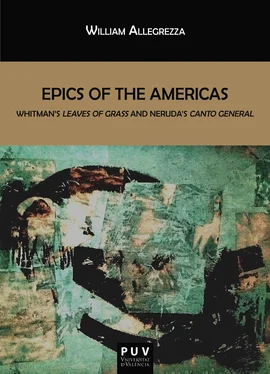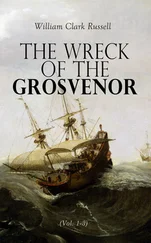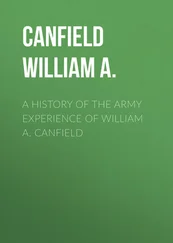William Allegrezza - Epics of the Americas
Здесь есть возможность читать онлайн «William Allegrezza - Epics of the Americas» — ознакомительный отрывок электронной книги совершенно бесплатно, а после прочтения отрывка купить полную версию. В некоторых случаях можно слушать аудио, скачать через торрент в формате fb2 и присутствует краткое содержание. Жанр: unrecognised, на английском языке. Описание произведения, (предисловие) а так же отзывы посетителей доступны на портале библиотеки ЛибКат.
- Название:Epics of the Americas
- Автор:
- Жанр:
- Год:неизвестен
- ISBN:нет данных
- Рейтинг книги:3 / 5. Голосов: 1
-
Избранное:Добавить в избранное
- Отзывы:
-
Ваша оценка:
- 60
- 1
- 2
- 3
- 4
- 5
Epics of the Americas: краткое содержание, описание и аннотация
Предлагаем к чтению аннотацию, описание, краткое содержание или предисловие (зависит от того, что написал сам автор книги «Epics of the Americas»). Если вы не нашли необходимую информацию о книге — напишите в комментариях, мы постараемся отыскать её.
Epics of the Americas — читать онлайн ознакомительный отрывок
Ниже представлен текст книги, разбитый по страницам. Система сохранения места последней прочитанной страницы, позволяет с удобством читать онлайн бесплатно книгу «Epics of the Americas», без необходимости каждый раз заново искать на чём Вы остановились. Поставьте закладку, и сможете в любой момент перейти на страницу, на которой закончили чтение.
Интервал:
Закладка:
After my visit to Macchu Picchu, I conceived the idea of singing the American man … My continuous experience and contacts with social struggles were sinking into me and with them began to germinate the idea of writing an epic poem to express the reality of our America. (quoted in Valenzuela 85)
Like Whitman, Neruda had past epic poets in mind while writing Canto general , but he wants to create a poetic tradition in Latin America. He also desires to act as a poet of witness—the function of witness is much more pronounced in Neruda’s work than in Whitman’s. Of Canto general he states, “There have been many writers who felt primary duties toward the geography and citizenry of Latin America. To unite our continent, to discover it, to build it, that was my purpose” (quoted in Santí’s “ Canto General ” 258). As with Whitman, Neruda writes Canto general in order to produce a foundational work for his society. Also, as with Whitman, Neruda believes in the persuasive function of poetry in creating a political culture necessary for a political institution. In Neruda’s case, however, poetry comes before the establishment of the political reversal. A democracy was already in place for Whitman. Canto general is as much a founding text of Latin America as it is a call for communism in the continent. Whereas Whitman rewrites history in Leaves of Grass to support the progress of democracy in the West, Neruda rewrites history to show the inevitable progress of communism. For Neruda, his epic poem must help create the cultural and political environment through which the despots of Latin America will be deposed in favor of communism.
Whitman knew the traditional epic would not function to found a new American tradition; it was too laden with European precedents, but he wanted to draw upon traditional epic characteristics. To do this, he tempered the epic with the lyric. Considering his focus on the individual as central to democracy, his use of the lyric as the carrier of choice is not a surprise. Traditionally the lyric has been associated with the lyric “I,” an aspect that Whitman uses to display the paradigm democratic individual in poems like Song of Myself . Often, critics mention that the lyric has the capabilities through focusing on a specific “I” at a specific moment to freeze that moment. In other words, by seeing how one person confronts a specific situation, we can see a connection to how we as humans would experience a situation; thus, the specific moment of the poem becomes timeless. Hank Lazer elaborates on this idea by stating that “the lyrical depends upon breaking, temporarily, the relationship of the part to the whole, of heightening the importance of the moment, of giving the moment an engaging shape” (36). Since Whitman believes that a poet should illuminate the present, he uses the lyric to provide an individual reaction to contemporary experience. This focus on the individual as an unit instead of as a hero in a story, as usually occurs in a traditional epic, stresses the importance of the individual’s role in American society, or rather the importance that Whitman would like to see the individual have. The focus on the individual also allows Whitman to present more than one version of the “I.” He can include the “I” in a heroic position and not worry about a consistent portrayal. The “I” of Whitman in Leaves of Grass can shift, and that shifting stresses the diversity of the individual in American society. Moreover, traditionally the lyric is thought of, as John Stuart Mill states, as an “utterance that is overheard” (12). T.S. Eliot describes this quality of the lyric as “the voice of the poet talking to himself – or to nobody” (96). Since Whitman wants his work to instill a democratic way of thinking in the reader, using a form with such immediacy can help connect him to the reader on a personal level, to create the effect at times of speaking directly to the reader or of him being overheard thinking to himself. In addition, the lyric is often described as related to song, as brief, as oral in nature, and as intensely personal. Whitman draws on each of these attributes in an attempt to craft a specifically American epic.
But the lyric own its own is not capable of the task of nation building, as one of its functions that has received much attention since Theordor Adorno’s article “On Lyric Poetry and Society” shows. For Adorno, the poet in writing the lyric creates something that is wholly individual. Adorno and critics following him like Hugh Grady and Michael Heller suggest that this process of creating something individual distinguishes the “I” as distinct from the collective. Adorno states, “The ‘I’ whose voice is heard in the lyric is an ‘I’ that defines and express itself as something opposed to the collective” (41). This aspect of the lyric causes some obvious problems for Whitman, for the lyric alone fosters a separation from the collective, but Whitman is attempting in his work to show how the individual works in the Union and still remains an individual. Writing a traditional epic alone would not allow Whitman to avoid such a problem encountered with the lyric, and it was out of this situation that the lyric-epic was born.
In the lyric-epic, the lyric and epic elements are combined, and Leaves of Grass , following James Miller’s terminology, is a lyric-epic (147). The text is a patchwork of lyrics that is pieced together to create an epic. Whitman essentially takes the episodic nature of the traditional epic and splits it into many numerous pieces with a sparse narrative connecting thread. Since he did not write any articles or major entries on this topic, it is not clear whether or not he theorized this form before writing or that in collecting the pieces for the first edition that he discovered the form in arranging the pieces. What is clear is that the form became important; Whitman revised Leaves of Grass many times to create the proper form. In the first editions of Leaves of Grass , a specific narrative line for the epic did not exist; the work is primarily focused on presenting the democratic American individual as a paradigm for the reader. As Leaves of Grass grew through new editions, Whitman introduced a narrative thread to the work, providing both introductory and concluding poems. 9 In the later editions, the work breaks down into sections that follow a basic narrative, even if several critics disagree as to where the splits are to be made. 10 Essentially, the work starts with introductory poems, moves to poems of a new American identity, explores the love of comrades, shifts to a section on the Civil War, moves to exploring spirituality, and then finishes with parting songs. In the last edition, there were also annexes written from the perspective of old age. One benefit of the lyric nature of Whitman’s lyric-epic is that it allows for growth; lyrics could be added, deleted, or shifted fairly easily without destroying the nature of the narrative. Plus, the patchwork of individual pieces together makes up a whole that resembles the numerous individuals that form together to create the Union. At its most basic, the lyric-epic suits the worldview that Whitman tries to espouse. On a more complicated level, Whitman takes elements from both the lyric and epic traditions of the Old World and attempts to structure them into a new American form. He believes that the old forms contain in part the political hierarchies of Europe, so by creating a new American style, he wants to infuse the new form with a democratic sensibility.
Whitman’s innovations opened the field for poets in the North and South America. He provided a stepping off point that many poets, like Williams, Dario, and Berryman, attempted to follow, but in many ways Neruda is the poetic inheritor who writes a work with the most similar vision to that of Leaves of Grass , which is not to say that Neruda took Whitman’s lyric-epic and simply copied it; rather, like Dante looking back to Virgil as a mentor, he takes the lyric-epic form that Whitman developed and infuses it with a Latin American worldview, more specifically with his communist mindset. Neruda states that Whitman was the first American poetic voice, and many poets and critics, such as Luiz Valenzuela, state that Neruda was the first poetic voice of Latin America.
Читать дальшеИнтервал:
Закладка:
Похожие книги на «Epics of the Americas»
Представляем Вашему вниманию похожие книги на «Epics of the Americas» списком для выбора. Мы отобрали схожую по названию и смыслу литературу в надежде предоставить читателям больше вариантов отыскать новые, интересные, ещё непрочитанные произведения.
Обсуждение, отзывы о книге «Epics of the Americas» и просто собственные мнения читателей. Оставьте ваши комментарии, напишите, что Вы думаете о произведении, его смысле или главных героях. Укажите что конкретно понравилось, а что нет, и почему Вы так считаете.












